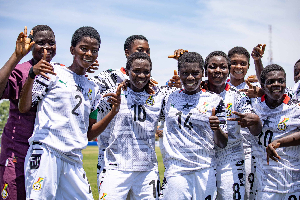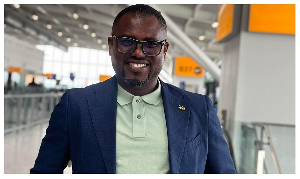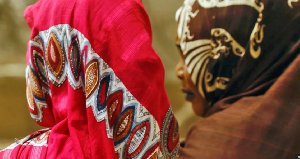Accra, Oct. 12, GNA - Ms Nancy Ansah, President of the Society for Women and AIDS in Africa (SWAA) Ghana, has noted that the global population increase of seven billion has necessitated the need to improve women's reproductive health.
She said the population expansion would be associated with some repercussion such as access to fertility issues, family planning commodities and services and good reproductive health services. According to her, the 2008 Ghana report on Millennium Development Goals (MDGs) indicated that Ghana would not able to achieve the MDG on child maternal health by 2015.
She said this implies that more women would continue to lose their lives during child birth if much attention is not given to reproductive health in the country. Ms Ansah made this known during a field trip to Agbogbloshie market in Accra to interact with migrant women and girls as part of the seven billion. The initiative was organised by SWAA Ghana, a non-governmental organisation in partnership with United Nations Population Fund (UNFPA), Ministry of Women and Children's Affairs (MOWAC) and National Population Council.
It was aimed at building the capacity of Kayayee (Porters) in the Agbogbloshie market on sexual reproductive health and rights issues. Ms Ansah said Kayayee are vulnerable and needs attention in the areas of reproductive health education and services, wealth creation and formal education. She said most of them sleep on verandas and in kiosks which exposes them to men who see their mere presence by the roadside as invitation for free sex. She noted that Kayayee are giving birth to many children as they ply their trade in Accra, adding that most of these children may not have fathers or responsible fathers. "Walking along the street of Accra, you will find many Kayayee carrying their children. Many of them also leave them with child care assistants in the various markets," she added. Ms Ansah said SWAA Ghana is committed in providing necessary support to the Kayayee who have good results to further their education and help those who are willing to acquire employable skills. She called on government to invest in Kayayee and help reverse the trend of young women travelling from the North to engage in load carrying.
Dr Bernard Coquelin, UNFPA Resident Representative said a report by UNFPA and MOWAC in 2009, indicated that Kayayee suffer disproportionately from unintended pregnancies, maternal death, sexually transmitted infections and gender based violence. According to him, government and a number of development partners had implemented interventions to address their needs but had largely remained ad-hoc and uncoordinated in essence. "These interventions require more co-ordination if it is to give the desired results," he said. He said UNFPA had provided support to MOWAC to create a platform for partners to learn about each other's programmes and build consensus on programme delivery.
He explained that this would help to decrease duplication of programme activities, increase networking and co-operation between implementing partners and strengthen linkages in various interventions for the target group.
He pledged UNFPA commitment to advance human rights to ensure equal rights and protections. Madam Mariama Yayah, Acting Director of the Department of Children at MOWAC assured government support in providing pragmatic measures to address the needs of Kayayee. Mr Mohammed Salifu, President of Kayayee Youth Association called on government to provide school and clinic in the Agbogbloshie area since their population is increasing.
Regional News of Wednesday, 12 October 2011
Source: GNA












